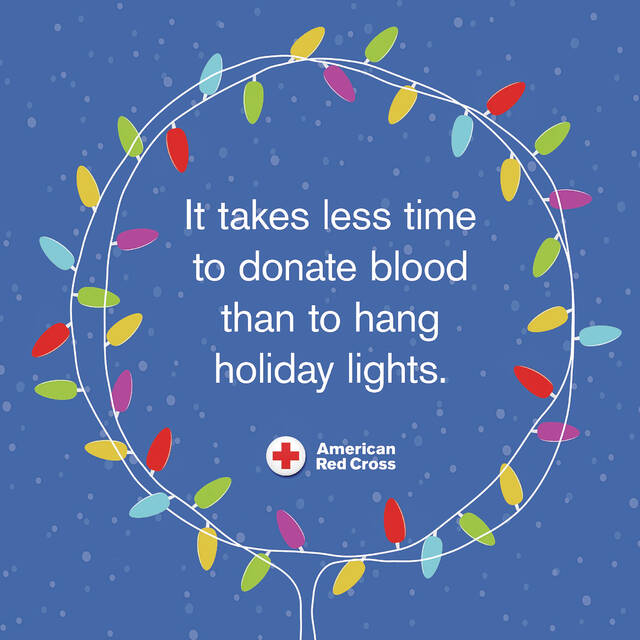
Donors are desperately needed as the emergency blood and platelet supply is the lowest the American Red Cross has seen this time of year in more than a decade.
Nearly two years into the COVID-19 pandemic, people are beginning to gather together with their family and friends to celebrate the season, while at the same time, the Red Cross, which provides 40% of the country’s blood, is facing a severe emergency blood shortage.
Busy holiday schedules, breaks from school and winter weather all contribute to a drop in blood and platelet donations this time of year. Those factors, combined with the ongoing challenges of COVID-19, make it more important than ever for donors to make an appointment to give as soon as possible.
Right now, the American Red Cross blood supply is at historically low levels, said Amber Youngblood, senior director of communications for the American Red Cross Kentucky Region.
“We’re at a point where some patients relying on a transfusion may not receive the blood they need,” she said. “If more donors don’t come forward to give blood, some patients requiring a transfusion may potentially face delays in care.”
Blood and platelets are for cancer treatments, surgeries, chronic illnesses and traumatic injuries, and one donation can save up to three lives, said LaMar Holliday, regional communications director for the American Red Cross Indiana Region.
Donors are urged to schedule an appointment now by using the Red Cross Blood Donor App, visiting redcrossblood.org or calling 800-733-2767.
There is no blood donation waiting period for those who have received a flu shot or a Moderna, Pfizer or Johnson and Johnson COVID-19 vaccine or booster so long as they are symptom-free.
To encourage donors to help address the historically low blood supply this holiday season, all who come to give between Dec. 17 and Jan. 2 will receive an exclusive Red Cross long-sleeved T-shirt while supplies last.
Each Red Cross blood drive and donation center follows the highest standards of safety and infection control, and additional precautions, including face masks for donors and staff, regardless of vaccination status, have been implemented to help protect the health of all those in attendance. Donors are asked to schedule an appointment prior to arriving at the scheduled blood drive.
Donors also can save up to 15 minutes at the blood drive by completing a RapidPass. With RapidPass, donors complete the predonation reading and health history questionnaire online, on the day of donation or from a mobile device or computer. To complete a RapidPass, follow the instructions at redcrossblood.org/rapidpass or use the Red Cross Blood Donor App.
To donate blood, individuals need to bring a blood donor card or driver’s license or two other forms of identification that are required at check-in, according to redcross.org.
